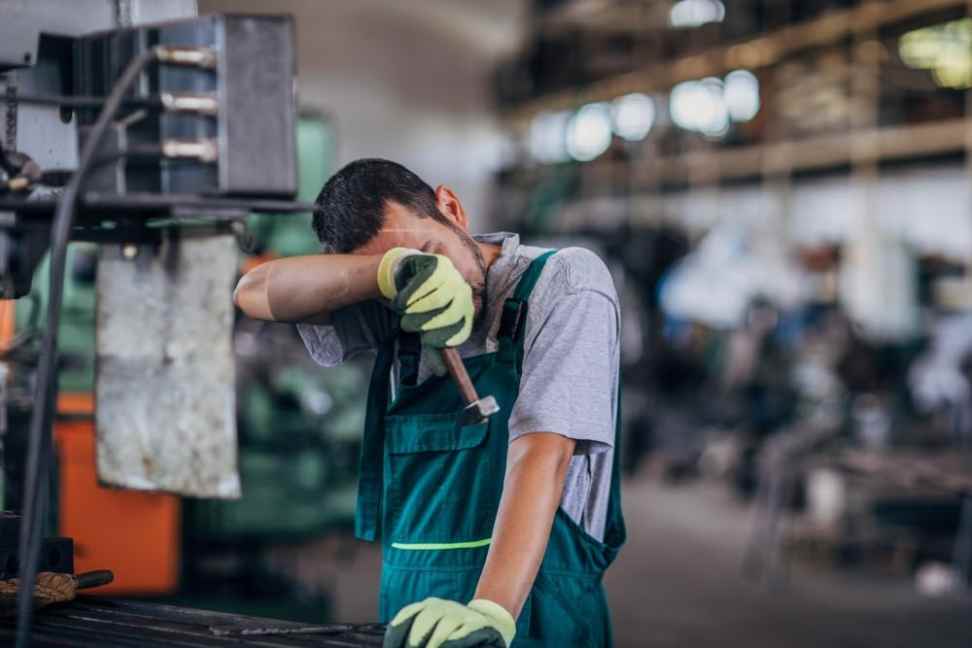The world around us, from towering skyscrapers to delicate surgical instruments, owes its form in part to the skilled hands of metal fabricators. This dynamic field demands creativity, technical expertise, and a passion for turning raw metal into functional and often beautiful objects. But is metal fabrication a good career path for you? Let’s explore the opportunities, challenges, and rewards this profession offers, crafting a picture of its potential fit in your journey.
Quantifying the Landscape: Job Market & Outlook
While pinpointing an exact number is challenging due to varying definitions and data sources, here’s a glimpse into the landscape:
- Global Perspective: The International Labour Organization (ILO) estimates that over 5 million individuals were employed in metal working trades globally in 2020, highlighting its widespread presence.
- US Focus: As of 2022, the US Bureau of Labor Statistics (BLS) reports over 530,000 individuals employed in “welding, soldering, or brazing workers” and “metalworkers and plastic-workers, including setters, operators, and related occupations.” This translates to 0.3% of the US workforce, signifying a sizable and steady sector.
- Growth Projections: The BLS further projects an 8% job growth for welding, soldering, or brazing workers and a 4% growth for metalworkers and plastic-workers, indicating promising opportunities in the coming years.
Beyond Numbers: A Spectrum of Roles and Industries
Metal fabrication encompasses a diverse range of roles, each contributing to the final product:
- Welders: Using various techniques like arc welding, MIG welding, and TIG welding, they join metal pieces permanently.
- Fitters and layout workers: Measure, mark, and prepare metal components for fabrication.
- Fabricators: Cut, shape, and assemble metal components following blueprints and specifications.
- Metalworkers: Operate machinery like CNC machines and laser cutters to shape and form metal parts.
- Quality control inspectors: Ensure fabricated parts meet safety, quality, and dimensional standards.
This diverse panorama caters to various interests and skillsets. Whether you enjoy hands-on work, thrive in problem-solving situations, or possess mechanical aptitude, there’s a potential path waiting to be explored.
Charting Your Course: Building Your Skills
Navigating this rewarding field requires strategic planning:
- Self-Discovery: Reflect on your interests, skills, and desired work environment. Do you enjoy working independently or collaboratively? Do you thrive in physical environments or prefer computer-aided design (CAD)? Aligning your strengths with specific roles is crucial for long-term success.
- Explore and Research: Dive into specific career paths, understand educational requirements (apprenticeships, vocational training, college degrees), and explore potential career paths. Industry websites, professional organizations, and online resources offer valuable insights.
- Develop Your Skillset: Hone your skills through hands-on practice, apprenticeships, or certification programs. Staying relevant in this evolving field is key to advancement.
- Network and Seek Mentorship: Connect with professionals in the metal fabrication industry, gain firsthand experiences, and learn from their guidance. Attending industry events, joining trade unions, and seeking mentors can open doors.
- Highlight Your Skills: Craft strong resumes and cover letters that showcase your technical skills, problem-solving abilities, and safety awareness.
Remember: The metal fabrication industry encompasses diverse companies, each with its unique environment, culture, and growth opportunities. Explore thoroughly to find the perfect fit for your aspirations.
Embracing the Future: A Landscape in Transformation
This industry is evolving, driven by:
- Technological Advancements: Robotics, automation, and additive manufacturing are changing fabrication processes, creating new roles in areas like programming and 3D printing.
- Sustainable Practices: Emphasis on eco-friendly materials and processes demands expertise in green fabrication techniques.
- Industry Growth: Sectors like renewable energy, infrastructure development, and advanced manufacturing offer emerging opportunities.
Adapting to these changes and developing relevant skills will position you for success in the dynamic world of metal fabrication.
Beyond the Numbers: A Rewarding Career Path
- Job Security: The essential nature of metal fabrication across various industries contributes to relatively stable job prospects.
However, be mindful of potential challenges:
- Physical Demands: The work can be physically demanding, requiring standing for long periods, lifting heavy objects, and working in potentially hazardous environments.
- Safety Risks: Adherence to safety protocols and awareness of potential hazards like burns, fumes, and injuries are crucial.
- Limited Upward Mobility: Career advancement might require additional education, certifications, or specialization depending on the company and role.
- Repetitive Tasks: Some roles involve repetitive tasks that might not appeal to everyone.
Remember, a career path is a personal decision. Consider your values, physical capabilities, desired work-life balance, and passion for working with metal.
Embrace the opportunities, navigate the challenges, and align your aspirations with the evolving needs of the metal fabrication industry. This path can lead to a fulfilling and rewarding career shaping the world around us, one piece of metal at a time.
Bonus Tip: Consider volunteering or interning in a metal fabrication workshop to gain hands-on experience, test your interest, and network with professionals before diving into a full-time career.
Remember, the journey to find your ideal career path is unique. Take your time, explore your options thoroughly, and trust your instincts to find the path that resonates with your heart and mind.
Read Also:
- Is Auto Manufacturing A Good Career Path?
- Is Other Specialty Stores A Good Career Path?
- How Many Jobs Are Available In Consumer Services?
- How Many Jobs Are Available In Consumer Durables?

